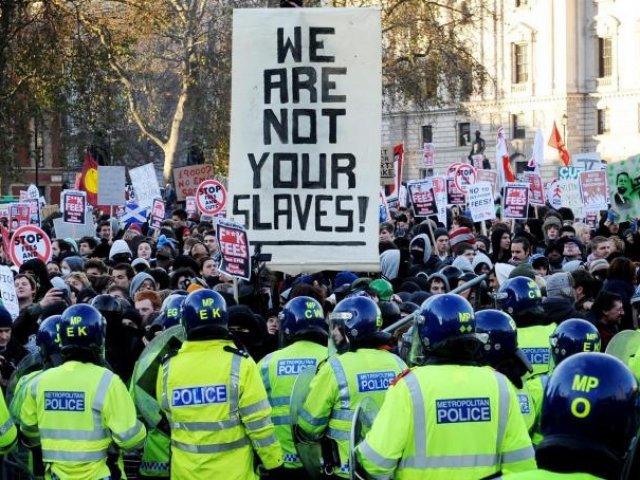David Cameron - Tory slave driver
Mr Cameron, too, is revealed to have slave owners in his family background on his father's side. The compensation records show that General Sir James Duff, an army officer and MP for Banffshire in Scotland during the late 1700s, was Mr Cameron's first cousin six times removed. Sir James, who was the son of one of Mr Cameron's great-grand-uncle's, the second Earl of Fife, was awarded £4,101, equal to more than £3m today, to compensate him for the 202 slaves he forfeited on the Grange Sugar Estate in Jamaica.
Another illustrious political family that it appears still carries the name of a major slave owner is the Hogg dynasty, which includes the former cabinet minister Douglas Hogg. They are the descendants of Charles McGarel, a merchant who made a fortune from slave ownership. Between 1835 and 1837 he received £129,464, about £101m in today's terms, for the 2,489 slaves he owned. McGarel later went on to bring his younger brother-in-law Quintin Hogg into his hugely successful sugar firm, which still used indentured labour on plantations in British Guyana established under slavery. And it was Quintin's descendants that continued to keep the family name in the limelight, with both his son, Douglas McGarel Hogg, and his grandson, Quintin McGarel Hogg, becoming Lord Chancellor.
Dr Draper said: "Seeing the names of the slave-owners repeated in 20th‑century family naming practices is a very stark reminder about where those families saw their origins being from. In this case I'm thinking about the Hogg family. To have two Lord Chancellors in Britain in the 20th century bearing the name of a slave-owner from British Guiana, who went penniless to British Guyana, came back a very wealthy man and contributed to the formation of this political dynasty, which incorporated his name into their children in recognition – it seems to me to be an illuminating story and a potent example."
Mr Hogg refused to comment, saying he "didn't know anything about it". Mr Cameron declined to comment after a request was made to the No 10 press office.
Britain's colonial shame - see also this piece by historian Catherine Hall.
Another reason then to detest Cameron - and a good time then for those fighting back against the Tories - whose workfare programme amounts to forced 'slave labour' for the poor - to remember figures from history such as Toussaint Louverture, leader of 'the only successful slave revolt in history'...

Edited to add: William Dalrymple on Cameron and the Amritsar massacre
Labels: Britishness, capital, David Cameron, Haiti, history, race, slavery





